‘Blue Beetle’ Director Said Film Had To Get Theatrical Debut Because Film Features Latino Superhero, Latino Family, And Highlights Latino Culture Differently
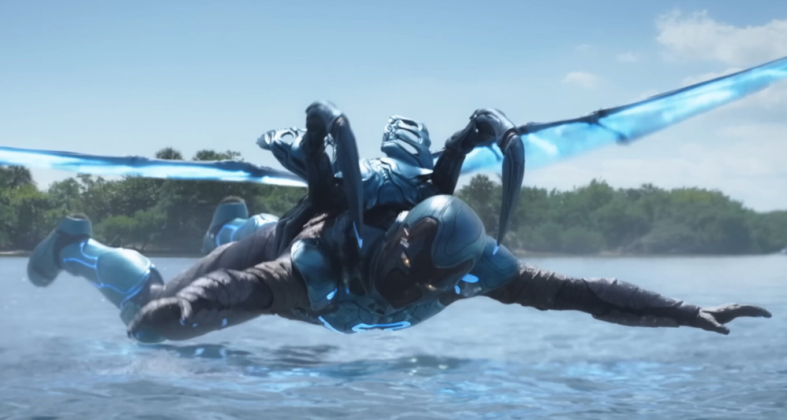
Blue Beetle director Angel Manuel Soto continued to market the film based on identity politics when he explained the film needed a theatrical debut because the film features a Latino superhero, Latino family, and showcases Latino culture in a different way.
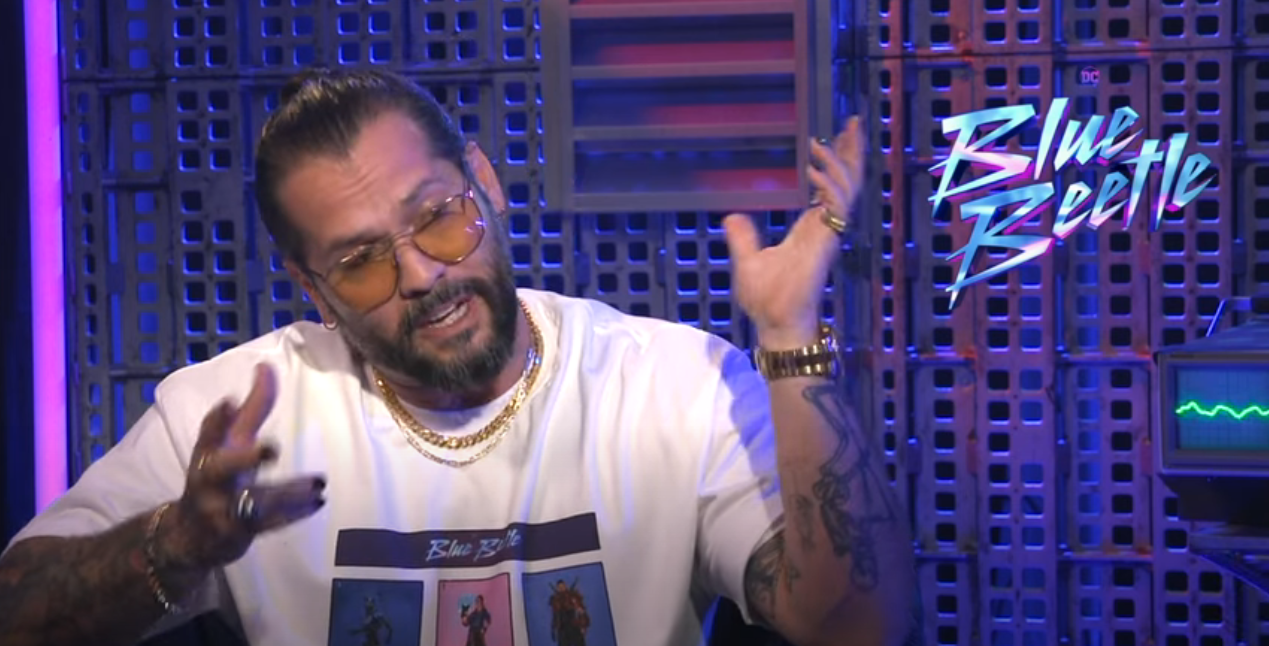
Angel Manuel Soto via The Playlist YouTube
Soto discussed the film transitioning from an HBO Max original to a theatrical release in an interview with Steven Weintraub of Collider.
He asked Soto, “One of the things about this film, is originally it was going to be going straight to HBO Max and then they decided to change it to being a theatrical release. And I am curious when you got involved had that decision been already made or were you involved in the whole they changed it. Do you see what I mean?”
RELATED: ‘Blue Beetle’ Director Claims SAG-AFTRA And WGA Strikes “Affect Disproportionately To Minorities”
The director responded, “When I came into the project the mandate was, at the time, everything goes to HBO Max, right? … And I was like, ‘You know, sure. I’ll do the movie, of course, it’s a great opportunity.’ But I’m like it can’t be that the first time that we have a Latino superhero front and center. Not just a Latino playing a hero, but where he’s a Latino, his family is Latino, and they’re gonna be actually being heroes of their own stories for the first time.”
“I was like it cannot just live on streaming,” he asserted. “Like he has to go to the theaters. Like the whole experience of watching these fantastical movies is to be amazed and in awe. And what about being able to see our culture represented differently.”
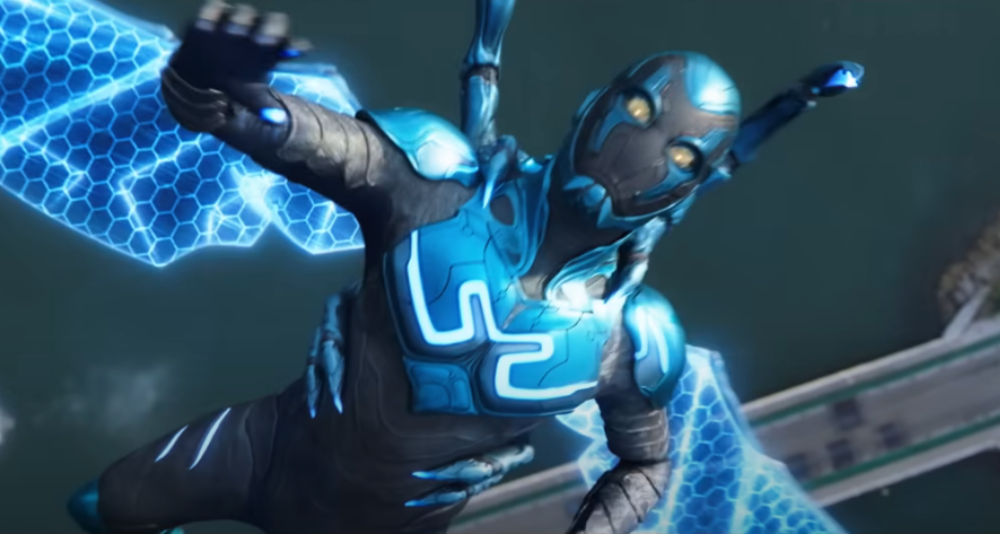
Xolo Maridueña as Blue Beetle in Blue Beetle (2023), DC Studios
Soto continued, “So we worked very, very hard to do this world building where the action sequences, the suit, the passion of the family, and the culture aspects are presented in way worthy of watching it not only in the theater, but even on IMAX.”
“And being able to see our communities that way I think we did an amazing job in bringing it to life on the concept development of it all. That at the end Warner Bros. decided that this movie has to go theaters,” he added.
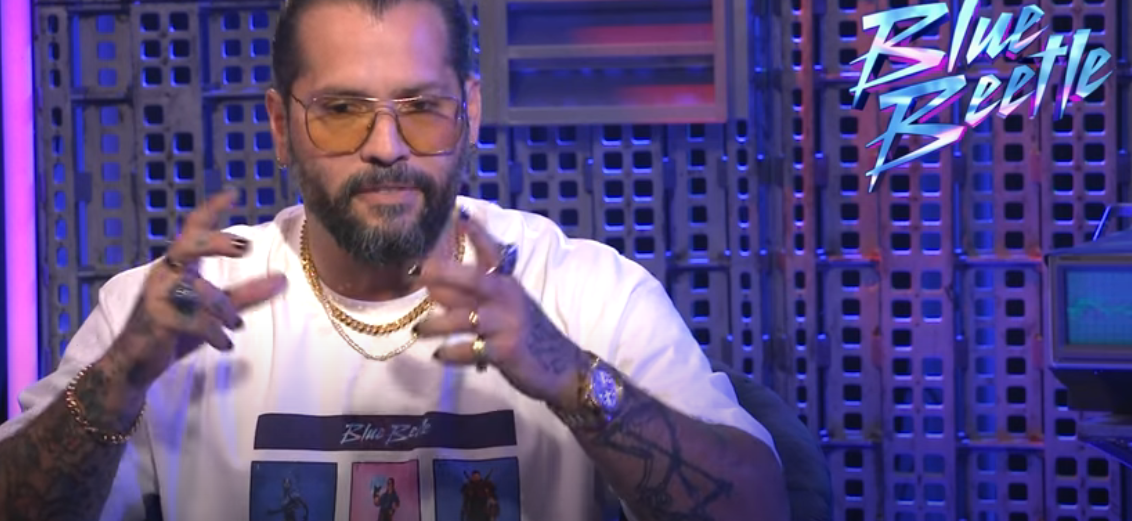
Angel Manuel Soto via Collider YouTube
He went on, “I don’t know the logic and politics behind it. What I do know is that we were able to be smart about how we handle our budget. That’s why we went practical and that’s why we went to real locations and oddly enough that also makes it feel bigger and more immersed because even like the third act takes place in a real fortress that’s 500 years old in Puerto Rico. That’s not like a green screen set.”
“You know being able to do that and see the magnificence of this building and seeing how imposing it and being able to capture that and have fun with this adventure in it was a way for us to be able to stretch our budget that kind of delivers on it, I guess,” Soto explained.
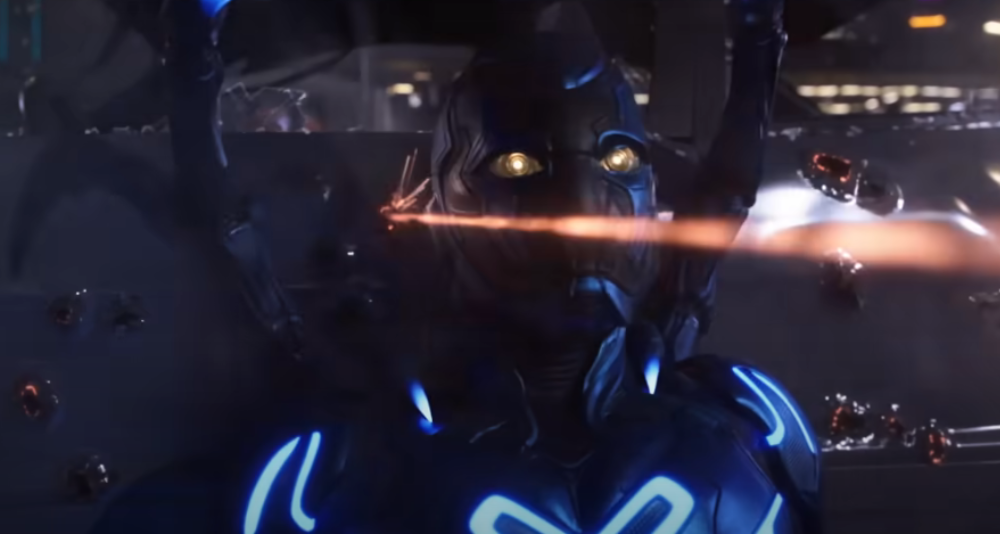
Xolo Maridueña as Blue Beetle in Blue Beetle (2023), DC Studios
Soto promoting the film based on identity politics is no surprise. In nearly every interview the director has given to promote the film he has made reference to market it in that way.
Speaking with TheWrap he questioned if it was possible to have a Latino superhero on a Times Square billboard, “Us seeing a Latino superhero of our own in Times Square is something that, if were think about it, is that even possible? Now it’s happening!”
Soto continued, “Being able to not only be promoted in the areas where our community transmits, but to also be up there with the other big posters and the big movies just shows you the power that we have and that we can also be the heroes that we know we can be.”
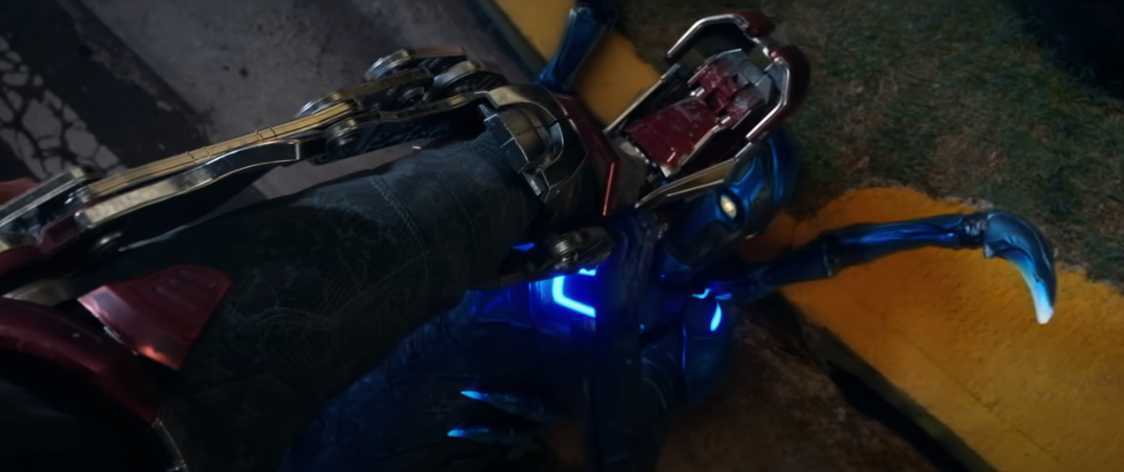
Xolo Maridueña as Blue Beetle in Blue Beetle (2023), DC Studios
While discussing the film with MovieMaker back in July he confirmed the movie features an illegal immigration allegory. The outlet posited, “Before the movie begins, the family has immigrated to America from Mexico, but [Jamie Reyes’ father] Alberto doesn’t have documentation, so he’s under the constant threat of deportation.”
“Though the film doesn’t depict an ICE raid, it does include a scene that echoes one,” MovieMaker added. “Kord Industries invades the family’s home in a scene that can play as just another dramatic moment in a superhero movie – or be taken as symbolic of events that tear apart real families.”
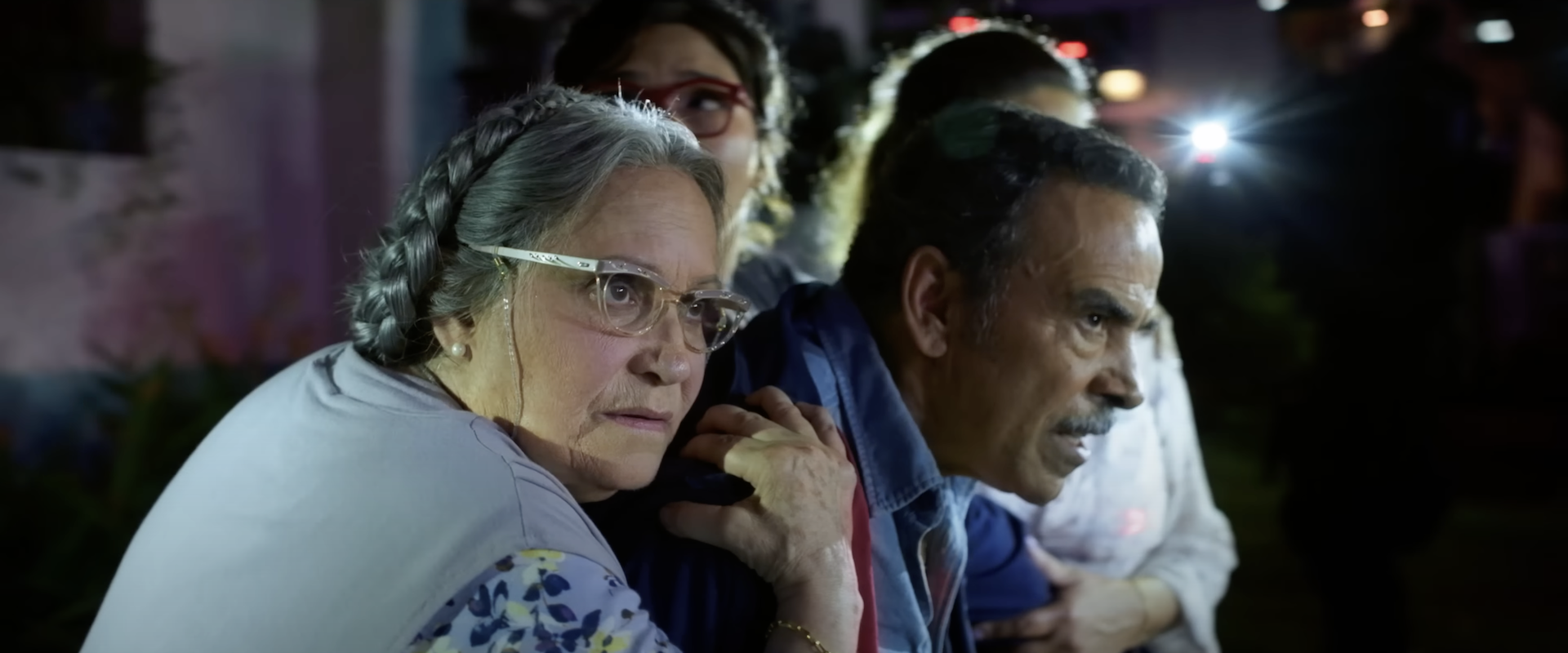
Adriana Barraza as Nana Reyes, Belissa Escobedo as Milagro Reyes, Damian Alcazar as Alberto Reyes, and Elpidia Carrillo as Rocio Reyes in Blue Beetle (2023), Warner Bros. Pictures
Soto confirmed this description of the film informing them, “There is a history that exists before an ICE raid. A history that includes traveling miles, and danger, working hard, becoming a family, creating memories, and thinking that everything is going to be okay.”
“But all of a sudden, everything that you have fought for, everything that you have worked for, everything that you have built, is now burning. I needed the depiction to be triggering, because it’s the experience of many,” he continued.
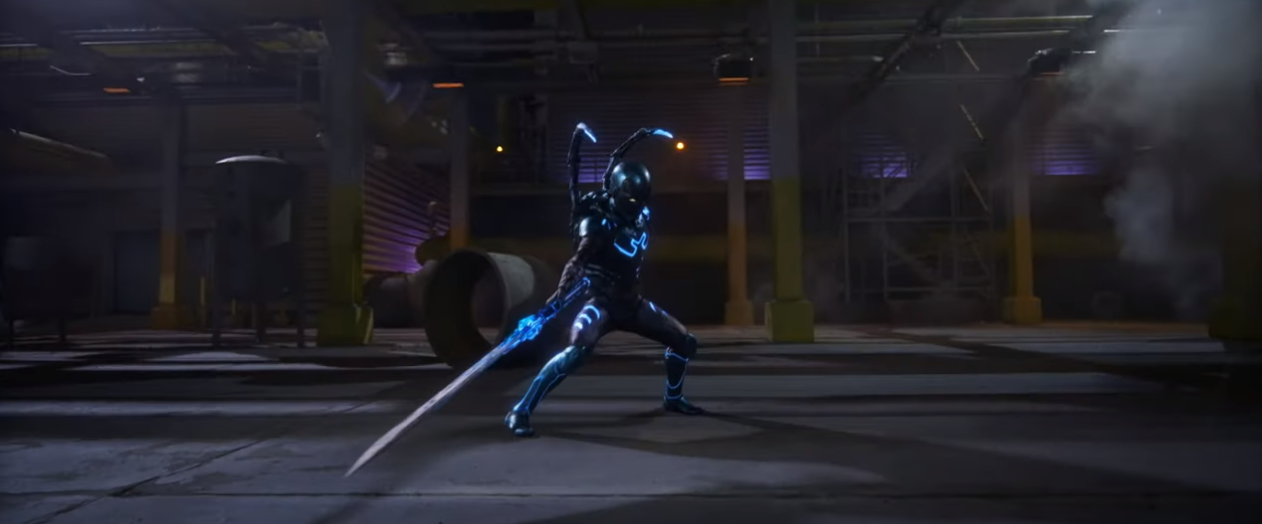
Xolo Maridueña as Blue Beetle in Blue Beetle (2023), DC Studios
In an interview with The Playlist he said that the film’s main supervillain, Carapax is a representation of interventionism in Latin America and the Caribbean.
He told The Playlist, that he sees the character of Bane in this regard, but did not know on whether he would get to work on the character so he took his ideas for Bane and applied them to Blue Beetle’s Carapax.
First, Soto explained his ideas for Bane, “As far as Bane goes, the comics that are about Bane’s story, it felt like he’s very misunderstood much like Carapax in the movie. He is a product of his environment and that history has been buried. The history of the Caribbean, the Antilles. It’s a history that’s brushed off in history books.”
“So for me, it was very important to be seen,” he continued. “And with the character of Bane, the formation of this villain, I think in his own right, he’s also a hero in his story. So whether whatever happens at the end that might have gotten distorted because of what was done to him, I think that what he represents is a lot of the unknown, or forgotten, or brushed under the rug history of interventionism in Latin America and the Caribbean.”
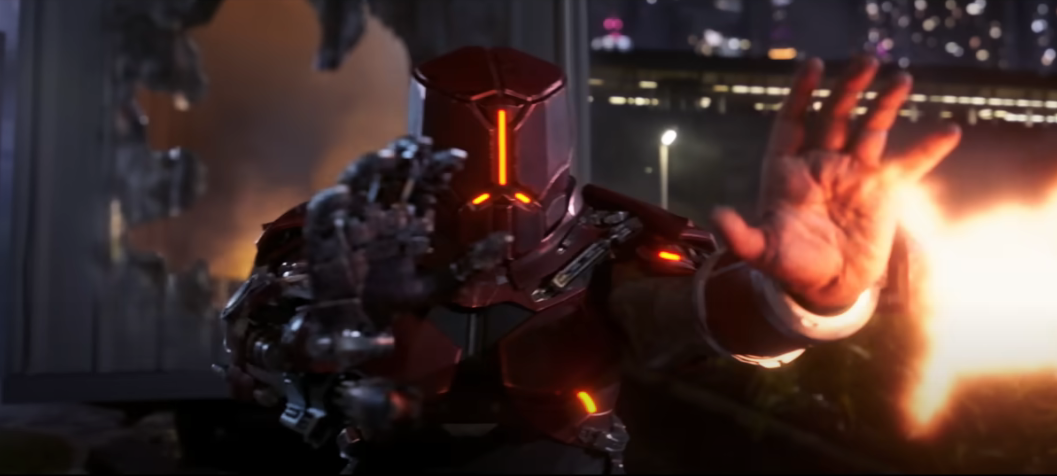
Raoul Max Trujillo as Conrad Carapax in Blue Beetle (2023), DC Studios
He later revealed he took what he viewed as Bane’s backstory and grafted it on to Carapax in the Blue Beetle film, “But while working on the character of Carapax, I was like, ‘Well, I don’t know if I’ll ever make a Bane movie. Let me take what I loved about Bane, about the backstory that I wanted to explore and let’s give it to Carapax.’”
Soto added, “Because part of the idea was that maybe Carapax and Bane came from the same place. Maybe!? I mean Pago Island, right?”
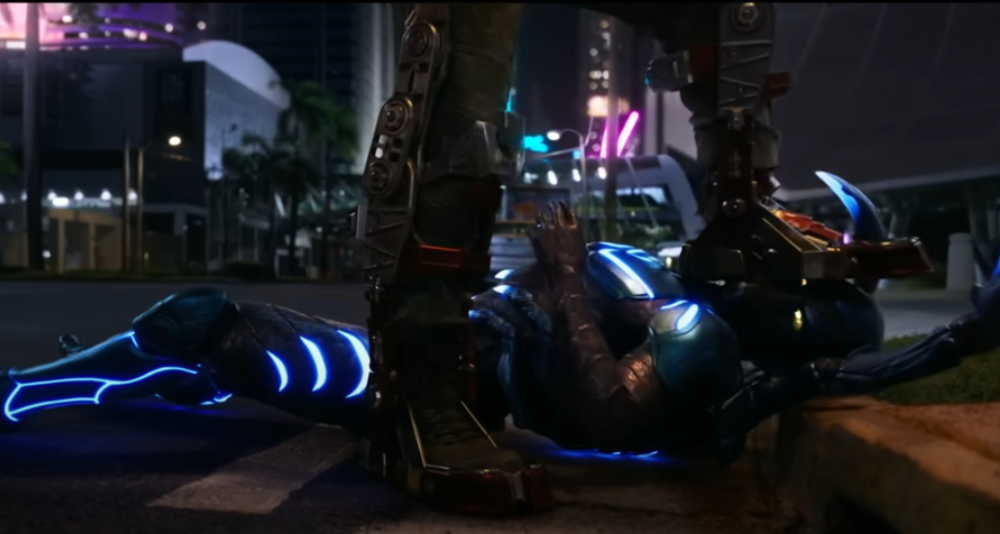
Xolo Maridueña as Blue Beetle in Blue Beetle (2023), DC Studios
He then explained the importance of taking his perceived version of Bane’s backstory and applying it to Carapax, “Because we need it. When we’re introduced to the world in movies, right, where we are seen as villains, it’s just given that we are born that way.”
“And when we talk about the history of Latin America, nobody dares to question, well, what happened before. Okay, well what happened before? More times than none when you go back even before 1954, but if we want to go to 1954 in Guatemala it was U.S. interventionism that drove these places to the miseries that they’re in.”
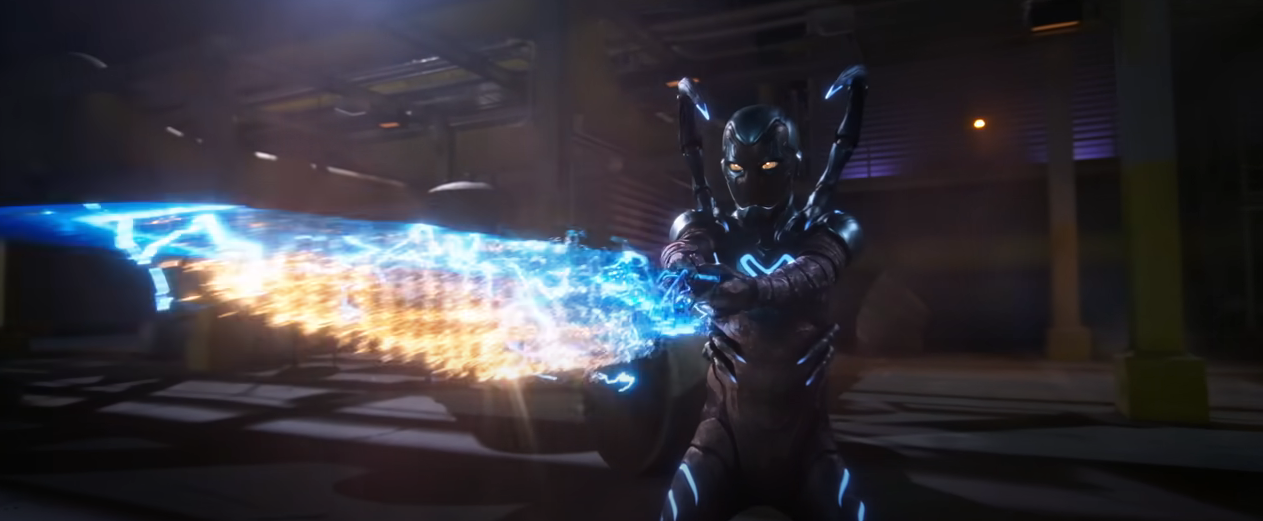
Xolo Maridueña as Blue Beetle in Blue Beetle (2023), DC Studios
What do you make of Soto’s claims about why the movie needed a theatrical release?
More About:Movies
